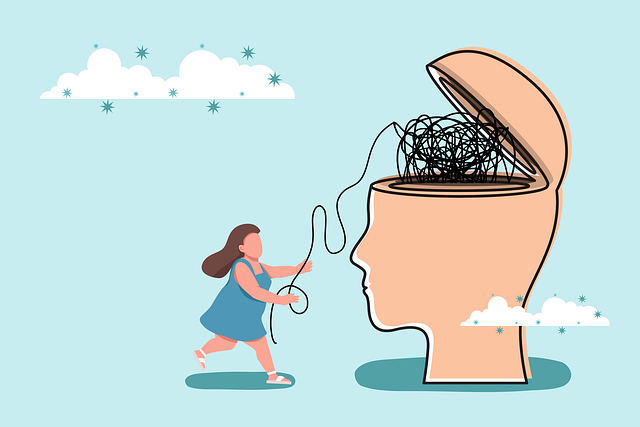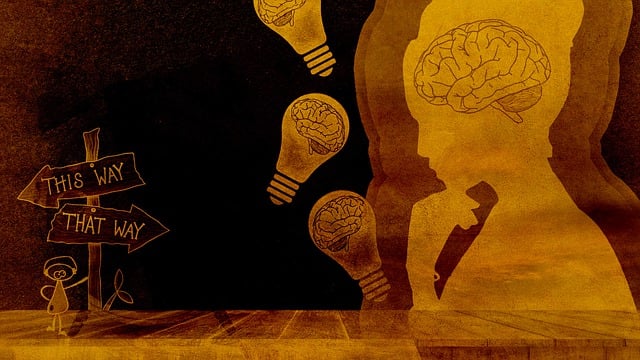Mental health policies play a pivotal role in ensuring children have access to necessary therapy, shaping their long-term well-being. Effective policies promote community outreach, dispel stigma through awareness campaigns, and integrate mindfulness meditation into educational settings, enhancing resilience. Gaps in current therapy landscapes, such as limited therapists and inadequate interventions, underscore the need for holistic approaches and increased advocacy focused on therapy for children. Advocacy efforts aim to improve access, implement evidence-based practices, and integrate mental health support from an early age.
Mental health policies play a pivotal role in shaping the well-being of children, yet their impact is often overlooked. This comprehensive analysis delves into the intricate relationship between mental health strategies and young minds, with a specific focus on therapy access. We uncover critical gaps in current systems, examining the barriers that hinder essential care for kids. Furthermore, this article presents advocacy strategies to drive policy changes, aiming to revolutionize mental health support for children, ensuring better outcomes and a brighter future. Discover how we can collectively push for effective therapy for children.
- Understanding Mental Health Policies and Their Impact on Children's Well-being
- Gaps in Current Therapy Access for Kids: A Critical Analysis
- Advocacy Strategies to Drive Policy Changes for Enhanced Child Mental Health Support
Understanding Mental Health Policies and Their Impact on Children's Well-being

Mental health policies play a pivotal role in shaping the well-being of children, often serving as the foundation for access to vital therapy for children. These policies influence the availability and quality of mental health services, impacting early intervention and long-term outcomes. Effective policies promote community outreach program implementation, ensuring that support reaches diverse populations. By integrating public awareness campaigns development, governments can dispel stigma and encourage open conversations about mental health.
Moreover, incorporating strategies like mindfulness meditation into educational settings and communities can significantly contribute to children’s overall resilience and emotional well-being. Such initiatives not only enhance coping mechanisms but also foster a culture of mental health literacy, empowering young individuals to seek help when needed. Understanding these policy implications is crucial for advocates aiming to improve child mental health outcomes.
Gaps in Current Therapy Access for Kids: A Critical Analysis

Mental health issues among children have been a growing concern, with significant gaps persisting in the current therapy landscape. Access to effective treatment remains challenging for many young individuals, highlighting a critical need for improved policies and resources. The existing system often falls short in reaching those who require support, especially within underserved communities. This disparity can be attributed to limited availability of specialized child therapists, inadequate insurance coverage for mental health services, and lack of age-appropriate therapeutic interventions tailored to children’s unique needs.
The current approach to therapy for children often focuses on individual treatment sessions, neglecting the importance of family involvement and community-based support. Integrating Self-Awareness Exercises, Social Skills Training, and Self-Care Practices into standard care could significantly enhance the accessibility and effectiveness of mental health services for kids. Such holistic approaches have the potential to not only address immediate concerns but also empower children with lifelong coping strategies.
Advocacy Strategies to Drive Policy Changes for Enhanced Child Mental Health Support

Advocacy plays a pivotal role in shaping mental health policies and ensuring that children receive the support they need for their well-being. Effective strategies can drive policy changes, leading to improved access to therapy for children. One powerful approach is to leverage community outreach programs that raise awareness about child mental health issues. By engaging parents, educators, and community leaders, these initiatives foster a culture of care and understanding. For instance, hosting workshops on positive thinking and emotional well-being can equip adults with the skills to recognize and support struggling children.
Additionally, advocacy groups can push for policy reforms that prioritize funding for child mental health services, ensuring that resources are allocated effectively. By presenting research and personal stories, advocates can sway decision-makers to implement evidence-based practices and innovative programs. The goal is to create a holistic system where therapy for children becomes an integral part of their overall development, incorporating mind over matter principles to promote resilience and mental agility from a young age.
Mental health policies play a pivotal role in shaping the well-being of children, and addressing current gaps in therapy access is essential. By analyzing the impact of existing policies and identifying critical shortcomings, we can advocate for transformative changes. Effective advocacy strategies, including raising awareness, engaging stakeholders, and employing evidence-based approaches, are key to driving policy shifts that prioritize therapy for children and enhance their mental health support systems.








